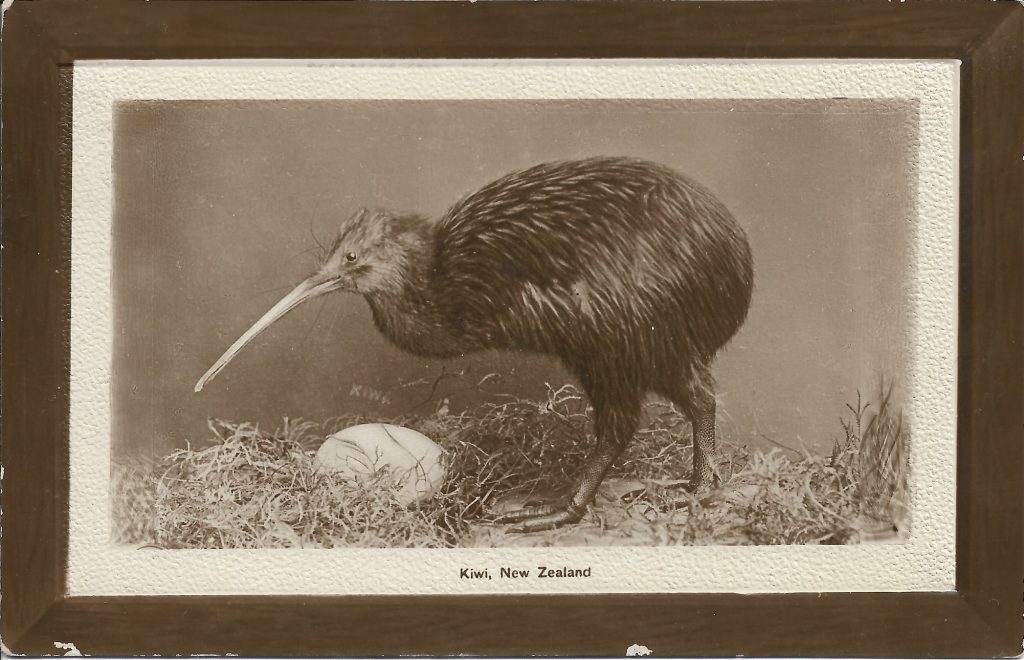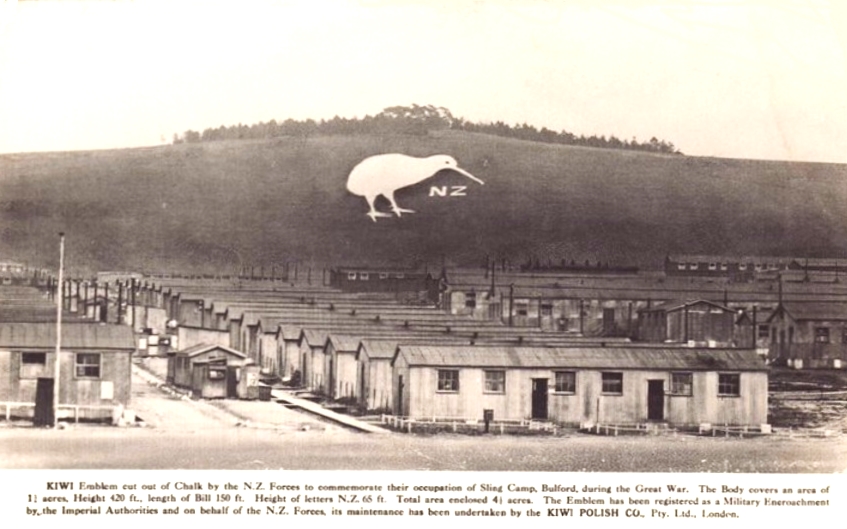Mary Irvine
The Kiwi, a Unique Feathered Friend

The kiwi, a flightless bird unique to New Zealand, is a feathered friend most people know about but may have never seen.
Birds are not usually thought of in terms of their senses, but the kiwi should because it is in many ways different from others of its species. The kiwi has a highly developed sense of smell; they are the only birds with nostrils at the end of their long beaks.
The female of the species lays one of the largest eggs in proportion to its size of any bird in the world. Size is of course relative, so even though it is about the size of a domestic chicken, a kiwi egg is about six times the size of a chicken’s egg. One egg can weigh as much as one-pound (450 grams) which is up to one-quarter the weight of the female.
During the First World War, the name “Kiwis” for New Zealand soldiers came into general use, and a giant kiwi (now known as the Bulford Kiwi) was carved on the chalk hill above Sling Camp in England. Sling Camp (mostly demolished in the 1920s) was in Wiltshire. It was occupied and used as a basecamp by the New Zealand Expeditionary Forces during World War One.

Usage has become so widespread that all New Zealanders overseas and at home are now commonly referred to as “Kiwis.”
These birds are endangered and major conservation efforts have focused on protecting the five different species of kiwi. As they are low in numbers and nocturnal most New Zealanders have never seen a kiwi in the wild, unless they have been on a special guided walk in one of New Zealand’s predator-free sanctuaries. Also, our southernmost island, Rakiura/Stewart Island has a species which sometimes wander around in daylight. The easiest place to see them is in one of the nocturnal houses at various New Zealand zoos and sanctuaries.
* * *
The kiwi-card is one that has a family connection for me. It was part of my grandmother’s postcard collection mailed to her in February 1915 by her friend, “E.M.” Granny kept a number of cards from E.M., some of which gave E.M.’s full name, Ethel Margaret Fleming.
Ethel was born in New Zealand in 1877, some 17 years before my grandmother. How they became friends, is unknown. Ethel sent Granny several postcards from Europe where she was touring extensively just prior to World War I. She must have been financially sound as holidaying on the other side of the world would have been an extremely expensive exercise back then.
On this postcard, sent from Auckland, New Zealand, Ethel writes, “Sorry to hear of your little bit of ill-fortune. Heard of it last Sunday evening. I hope that otherwise good fortune is yours. Kind Remembrances, EM.”
It was addressed to “Miss Fletcher, Thames Central Public School, Thames.” My grandmother, Lucy Fletcher, was then a teacher at Thames, the largest town on the Coromandel Peninsula. *
There is no family lore to explain the comment about ill-fortune. I have been unable to relate it to any family events or deaths. Do you agree that the comment seems a bit condescending?
______________________________________
* The Coromandel Peninsula is a significate part of New Zealand’s north island, recognized as a resort area with splendid beaches. The deep woods areas on the peninsula, located in the north-central part of the island is the home of many of the last wild populations of kiwis.
Another highly enjoyable article.
Thank you for publishing my article on the kiwi. I didn’t cover this in my article but the kiwi has a very long, shrill call that is distinctive and loud and the male call differs from the female call. Of course it is only heard at night as the bird is nocturnal. Kiwi live in dense native bush with lots of ground cover to protect them.
From 1992 to 1999, there was a company known as Kiwi International Air Lines based in Newark, New Jersey. The founders had been pilots for Eastern Airlines before it went out of business, and chose the name because they had been “flightless” for the last few years.
That’s interesting, Bob, I hadn’t heard of that airline.
I love Kiwis they are so cute and I have a few Kiwi postcards in my collection. This was an fun article. I love how they carved one in chalk. Thanks for sharing
Thanks Kristina, I’m glad you enjoyed my article. I’m wondering whether your Kiwi postcards are ones featuring our famous bird or ones showing places in New Zealand? I’m pleased to hear that people from around the world, other than New Zealanders, are collecting them.
Adorei conhecer seu blog, tem muito artigos bem interessantes. Sorteio das 15:40 horas